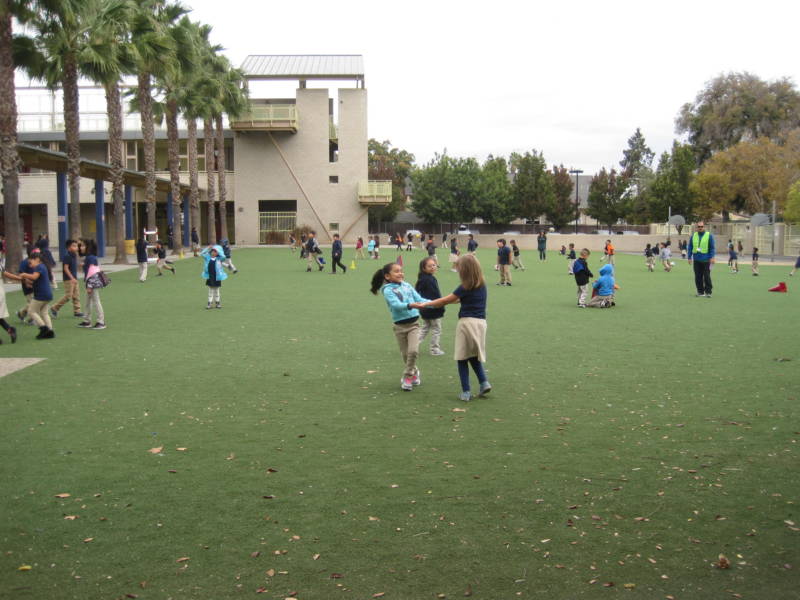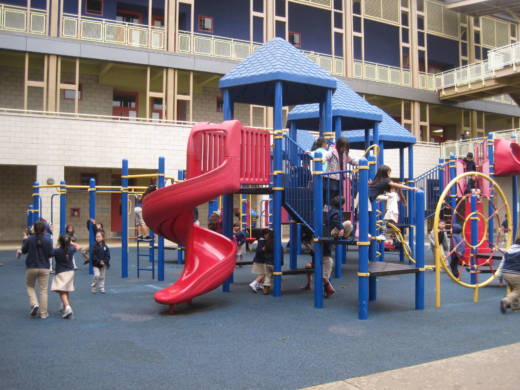Unlike bonds, which are used for building new schools or renovating old ones, parcel taxes can be used for anything — from music and art to teacher salaries. They’re more common in the Bay Area than anywhere else in the state. But they require a two-thirds majority of votes to pass.
“Proposition 13 limits property taxes. And these parcel taxes are one of the only loopholes around that Prop. 13 restriction,” said Eric McGhee of the Public Policy Institute of California. He’s co-author of a report about school parcel taxes in the state.
Voters in San Jose Unified rejected a parcel tax proposal back in 2003. But this November, district leaders think they have a chance to get the supermajority they need. They’re asking voters to pass a measure that would allow the district to collect $72 a year for eight years from all property owners.
It’s facing some opposition.
“Already about 50 percent of the money that goes into the school budget does not reach the classrooms,” said Mark Hinkle, president of the Silicon Valley Taxpayers Association, who wrote the argument opposing the measure. “A big chunk of the money is going to administration, bureaucracy and bloated pensions. That’s not helping the students at all.”
In the Bay Area alone, there are 17 school parcel taxes, as well as 25 school bond measures, on local ballots.
Oakland Unified School District is going for its third parcel tax. The district already has one permanent parcel tax in place. Measure G passed in 2008, and pays for teacher recruitment and retention, school libraries, art, music and classes needed to apply for college. Oakland also has a 10-year parcel tax, Measure N, to pay for job training and preparing high school students for college. It expires in 2024.
The new Oakland measure, G1, would pay for middle school enrichment and could be used to increase teacher salaries, which are among the lowest in the Bay Area. The measure has been opposed by some parent and teacher groups because it would give a portion of the funds to charter schools.
Voters in Berkeley are being asked to replace an expiring school parcel tax with a new larger one. It would yield an estimated $28 million annually, making it the largest on any Bay Area ballot this year. Berkeley’s parcel tax currently provides about 20 percent of the district’s budget, paying for many classroom teachers, school libraries, music programs and other services.
Berkeley was one of five districts in the state with the largest proportion of revenue coming from parcel taxes in 2011-12, according to information compiled by EdSource. The others were: Piedmont City Unified, Kentfield Elementary, Mill Valley Elementary and Emery Unified.
“Wealthy school districts are much more likely to have passed one of these taxes, and to have put one of these things on the ballot in the first place,” McGhee said. He says the Bay Area has more parcel taxes than other part of the state because of the high cost of living, which requires higher teacher salaries, and because voters in the generally liberal Bay Area are often more willing to raise taxes on themselves.
School districts are proposing more bond measures this year, too. The biggest one is San Francisco, which would issue $744 million in bonds to renovate existing schools, build two new ones and put some money toward affordable housing for teachers.
Most bond measures need only 55 percent of the vote to pass.
McGhee says it’s possible that they are easier to pass than parcel taxes, because it may not be clear to voters how much they will end up paying in added property tax to repay the bonds.
One reason there are so many local bond measures on the ballot this year is because of Proposition 51, which would provide construction funds to school districts that can come up with matching funds.
“So you can make the case, ‘Hey, we’re just getting a piece of this state pie. If we pass our construction bond, we’ll get extra money from the state, and it’ll be even better,’ ” McGhee said.


